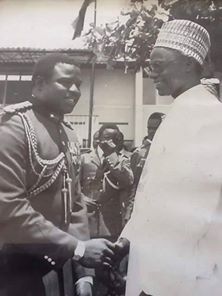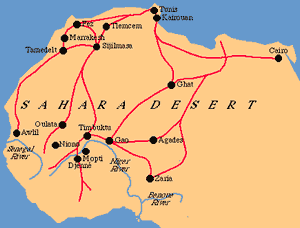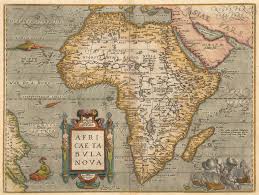The Fall of Nigeria’s Second Republic: How Corruption and Electoral Fraud Led to Military Rule

The Fall of Nigeria’s Second Republic: How Corruption and Electoral Fraud Led to Military Rule
Explore how corruption, electoral fraud, and political unrest led to the fall of Nigeria’s Second Republic and the return of military rule in the early 1980s.
The Second Republic of Nigeria (1979-1983) was a brief yet pivotal period in the nation's history. It was marked by democratic aspirations, economic struggles, political corruption, and, ultimately, a military coup that ended civilian rule. The fall of this republic serves as an essential lesson in governance, accountability, and the consequences of electoral malpractice.
The Birth of the Second Republic
Shehu Shagari taking the oath of office as Nigeria’s first Executive President in 1979, marking the start of the Second Republic.
After 13 years of military rule following the collapse of the First Republic, General Olusegun Obasanjo’s military government initiated a transition to democracy. The 1979 elections ushered in Alhaji Shehu Shagari of the National Party of Nigeria (NPN) as Nigeria’s first executive president under a new constitution modeled after the American presidential system.
The political system was multi-party, with five dominant parties:
- National Party of Nigeria (NPN) – The ruling party
- Unity Party of Nigeria (UPN) – Led by Obafemi Awolowo, a strong opposition force
- Nigeria’s People Party (NPP) – Led by Nnamdi Azikiwe
- Great Nigeria People's Party (GNPP) – A regional player
- People's Redemption Party (PRP) – Another opposition party
The Challenges of the Second Republic
Despite the high hopes for democracy, the Shagari administration soon encountered significant challenges:
1. Economic Crisis
The oil boom of the 1970s had fueled optimism, but by 1981, global oil prices had plummeted. Nigeria’s economy, heavily dependent on oil, suffered a severe downturn. Instead of adjusting to the economic realities, government spending increased recklessly. The country’s foreign debt skyrocketed from ₦3.3 billion in 1978 to ₦14.7 billion in 1982, worsening inflation and unemployment.
2. Corruption and Mismanagement
Government officials and politicians looted public funds with impunity. A major scandal involved the Minister of Transport, Umaru Dikko, who allegedly misappropriated billions meant for rice importation. Dikko’s infamous statement that there were "no poor people in Nigeria" fueled public anger.
Political figures engaged in arson of government buildings to destroy corruption evidence. The culture of impunity created widespread disillusionment among Nigerians.
3. Political Violence and Electoral Malpractices
The 1983 general elections were marred by massive rigging, voter intimidation, and ballot stuffing. The ruling NPN was determined to consolidate power at all costs, transforming Nigeria into a one-party state. Even before the elections, the party used state institutions, including the judiciary and electoral commission, to suppress the opposition.
The opposition parties, UPN, NPP, GNPP, and PRP, were systematically pushed out as NPN increased its control from seven to twelve states through questionable electoral victories. The blatant fraud led to violent protests in states like Ondo, where opposition supporters set government buildings on fire.
4. Unemployment and Social Unrest
As economic hardship worsened, crime rates surged. Armed robbery and political thuggery became rampant. Frustrated youths, unable to find employment, were used as tools of political violence during the 1983 elections.
To curb the situation, Shagari ordered the expulsion of over 2 million undocumented immigrants, mostly Ghanaians, in a move that became known as “Ghana Must Go.” However, this did little to address Nigeria’s underlying unemployment crisis.
5. Religious and Ethnic Clashes
During Shagari’s tenure, religious extremism led to deadly conflicts. The Maitatsine riots (1980-1982) in Kano, Kaduna, and Maiduguri left thousands dead. The government’s weak response further eroded confidence in Shagari’s leadership.
The Military Coup of December 31, 1983
Nigerian soldiers patrolled the streets after the 1983 coup, restoring military rule in the country.
As discontent grew, the military waited for an opportunity to strike. After the highly controversial 1983 elections, the stage was set. On December 31, 1983, Major-General Muhammadu Buhari led a coup that ended the Second Republic.
In his announcement, Brigadier Sani Abacha cited rampant corruption, electoral fraud, and economic mismanagement as justifications for the takeover. Shagari was placed under house arrest, while several of his ministers were jailed or went into exile.
Lessons from the Fall of the Second Republic
- Corruption Undermines Democracy – The looting of public funds and the misuse of power by politicians created conditions that justified military intervention.
- Electoral Malpractices Lead to Instability – The rigged elections of 1983 demonstrated that when people lose faith in democratic processes, violence and unrest follow.
- Economic Mismanagement Has Consequences – Over-reliance on oil revenue, unchecked government spending, and rising debt led to a financial crisis that crippled the country.
- Military Rule Isn’t Always the Solution – Although the military removed a corrupt government, Buhari’s regime became known for repressing political freedoms, leading to another coup in 1985.
Conclusion
The collapse of Nigeria’s Second Republic was a self-inflicted disaster. Instead of strengthening democracy, politicians prioritized personal gain, ignored economic warnings, and engaged in electoral fraud. The result was inevitable; military rule returned, setting Nigeria back for another decade.
As Nigeria continues its democratic journey, the lessons of the Second Republic remain relevant. A transparent electoral process, accountable leadership, and economic diversification are essential to preventing history from repeating itself.


